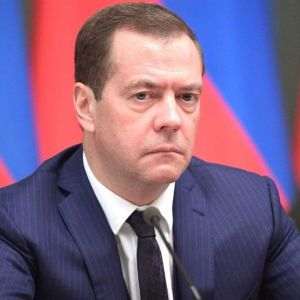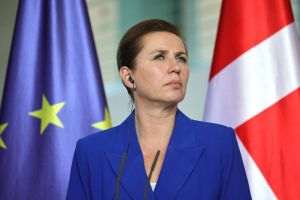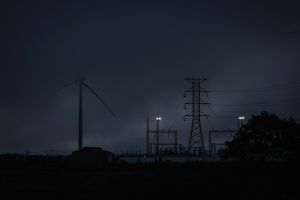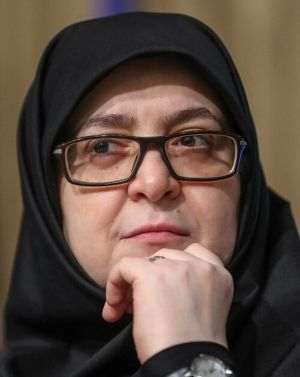The tragedy occurred on July 17th, 2014. Now, there are attempts to find the authors behind the act, the ones who fired that missile, the data is being analyzed to find out where it has been launched from, international investigations are being conducted at the crash site, hypotheses are being issued, accusations are being thrown around back and forth. The international community is engaged in a major media war, in an attempt to find out who bears the blame and how everything happened. Aside from the personal tragedy of each of the people on board, the feelings of the families, friends... All this won't end any time soon. And the effects of the criminal act will be felt for a long time.
You don't have to be an expert to conduct your own evaluation. There are plenty of facts and clues for that. The missile was fired from Ukraine. Work is still being done on identifying the exact location of the launch. This is possible, according to the American experts, who referred to the "thermal prints" of the missile, the impact and the disintegration of the plane. The goal is to establish without a doubt whether the missile was fired from the territory controlled by the pro-Russian separatists, which would make the matter of direct responsibility easier - identifying "who pulled the trigger". Besides, it would be hard to accept that the current Ukrainian authorities had any real or at least likely reason for such an act, even if the Ukrainian army had such missile systems, since back in the "Soviet" era. The suggestion that the missile was operated by the Russian army can be considered just as unlikely. Commenters don't rule out the case where the system was operated by "specialists" that arrived from Russia unofficially. The American ambassador with the UN estimated that the system was sufficiently sophisticated to require specialized assistance for those who operated it.
The clues - circumstantial though they are, true, point to the pro-Russian separatists who control an area in Eastern Ukraine above which the MH 17 was struck down as being the authors of the attack. Among those clues, there is the statement of the representatives of the separatists that they now have the means to protect the air space of the self-proclaimed Donetsk republic - a piece of news published by Russian news agency ITAR-TASS on June 29th. The rebels were referring to the fact that they have "obtained" a missile launching system from the Ukrainian army. A few days prior to the incident, they had claimed having struck down two Ukrainian planes, of which a SU-25 Ukrainian fighter jet on July 14th, three days before the crashing of the MH17 flight. And on the day of the tragedy, journalists affiliated with Associated Press saw a missile launcher near the town of Snejni, controlled by the separatists. On the very day of the attack, the separatists published the news that they struck down a Ukrainian military transport aircraft. They immediately took down the announcement after realizing that they had actually struck down the Malaysian liner.
The same category of clues suggest the fact that the missile system was operated without the information provided by a central radar, which would have allowed the identification of the targets as a civilian aircraft (according to the statement of Pavel Felgenhauer, a military issues analyst with Russian newspaper "Novaya Gazeta", Moscow). In this case, the people who launched the missile, could have mistakenly thought that they had a Ukrainian aircraft in their sights.
The missile which was fired is part of a highly sophisticated missile firing system (called either BUK, or SA 11-SAM). And also expensive, worth 500 million dollars. Tight tabs are kept on such a system in any army. This is not a mere musket hidden in a barn. That system left a military base, and there were only two possible "candidates" who had such a system available: the Ukrainian and the Russian army. Personally, I think that the accusations levied by Kyiv through the voice of the Ukrainian ambassador with the UN, that the missile launch system was brought in from Russia have little credibility.
On June 29th, the separatists announced that they had "obtained" a BUK battery in Donetsk. And on the morning of July 17th, a launcher was displaced by the separatists in the area of Snezhnoe (Yulia Latinina, in "Novaya Gazeta", July 18th). If it is true that the "source" of the launcher was the Ukrainian army, then this raises questions on why Ukraine has kept silent about this fact. And a conclusion can be reached from these circumstances, preliminary though it may be. That the weakness of the government in Kyiv (I am avoiding the use of the "central power" expression) has become obvious. "The emperor has no clothes!" The defining attribute of any state authority is exercising the efficient and effective control, of the territory of the nation, within the boundaries set by the constitution, especially in times when the authority is being tested. It is unacceptable for military bases to be so easily stolen from. And for the army to keep silent when the opponents claim that they were able to "raid" them without any difficulty. Which raises other questions too: how was the missile system "acquired"? Were there accomplices in the Ukrainian army who helped? Were those accomplices motivated by money or by Russian nationalism? Going further along, it is a legitimate question to ask why did the government in Kyiv not shut down its air space above the area of the secessionist conflict, which was actually, for all intents and purposes, the stage of a civil war. The successive announcements concerning the closing down of the flight lanes at various heights are not sufficient "per se".
International support and sympathy are not a substitute for effective and efficient authority. On the contrary, the frailty of the government in Kyiv deprives the international support it is getting of its credibility as well. Or, in periods of crisis that threaten to escalate, the indecision and the hesitations of the "central" authority make things worse. Why should a regime that is weak, that apparently lacks real large-scale support among the population receive international support? Let's assume that the authors of the act will not be caught any time soon. What happens from now on? Is it out of the question that such tragedies won't happen again? I think not. Unfortunately, this situation is not like the one of the Somali pirates that happened a few years ago and that was harshly dealt with. It took a while, the countries that had power in the international waters took the necessary measures and the pirates were exterminated swiftly. It is true, however, that their punishment occurred in the international waters, beyond the borders of any country. In the case of Ukraine, that is not an option. It remains the responsibility of the Ukrainians themselves to do their job.
The aforementioned things do not exonerate the people who fired the missile, or those who encourage them, openly or tacitly. From that point of view, catching and punishing the guilty will take a long time, (just like in the case of the PANAM flight that was brought down over Scotland in 1998). Until that happens, however, Russia must clearly distance itself and clearly condemn this act of barbarism, and cooperate on finding the authors. So far, the statements of the officials in Moscow are not encouraging from that point of view. The accusations against the regime in Kyiv who made this tragedy possible by not handling the domestic conflict are insufficient or irrelevant or simply, "not to the point". Bringing down a passenger airplane in a pirate-like manner can not be excused or explained, it can only be sanctioned. Regardless of how "macho" they may be, separatists have obedience in their political genes. Or, in this particular case, it is no secret that Russia has the ability to withdraw the support it has given them. But even if such a disavowal occurred and the Russian-Ukrainian border were "sealed", that would still leave a hardcore group of separatists. Those would be much easier to put in their place. Sure, Russia can refuse to do that. It is powerful enough. But in the long run, I am not convinced that it is in Russia's interest to attract the stable enmity of so many people, so many countries, including Muslim ones.
Why did the airline choose that fatal flight path?
It is a traditional path for many companies with flights from Europe to South-East Asia - Kuala Lumpur, Hong Kong, Singapore etc, at the lowest cost. The selected route between the departure and the arrival points allows significant fuel and time savings.
About 350 flights would fly over that area daily prior to July, when Ukraine announced the closure of that lane up to 8,000 meters. It later closed that lane up to a height of 11,000 meters. It is still hard to understand the circumstances which made selecting this route possible given the state of conflict in Eastern Ukraine. It would appear there have been plenty of warning signs. Ukraine shut down the airspace, but ... apparently without taking any concrete action. Which puts it at risk of having to face legal action later. The American authorities have warned American companies to avoid the area since back in April and the latter took those warnings seriously. ICAO - the International Civil Aviation Organization has also sent alerts to member states concerning the airspace above Crimea. Unfortunately, without any result in this particular case. There are other areas of conflict all over the world that have imposed alternate flight paths for airlines. The financial implications are not the most welcome - operating costs increase, and that increase will be shifted to consumers. Some companies may no longer be able to operate. The Malaysian company gets its second major blow in just a few months and its chances of making a comeback are being questioned. Shares of many airlines dropped significantly after the MH 17 flight was taken down.
Geopolitically, the act of terrorism increases the tension not just in the area, but internationally as well. On top of the fact that, if Russia maintains its stance, it will be very hard for those responsible to be actually punished. And Russia's strategy to sow discord between the Western countries, starting off from the imposition of economic sanctions against it, will lose the effectiveness expected by the Russians. Overall, the things that have happened substantially decrease the odds of a resolution of the conflict/civil war in Ukraine. The global geopolitical stress is increasing - aside from the conflict in Gaza, the difficult negotiations in the Iranian nuclear case, the volatile situation in Iraq, we have a worsening of the Ukrainian crisis. The polarization of the international relations is becoming increasingly volatile, in contrast to the unipolarity that we had become accustomed to after 1991. The players representing multipolarity, for example the states of the BRIC group, will tend to promote their own solutions not only in the financial sector (for example, the recently announced creation of the micro-IMF), as well as politically. The result will be an increase in the randomness of international relations, which will affect all countries.
















































